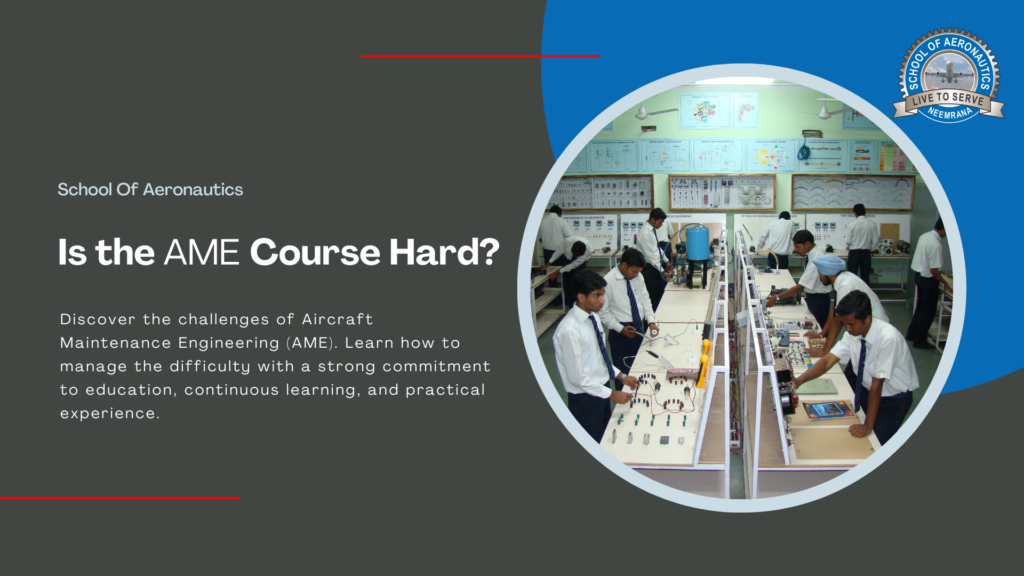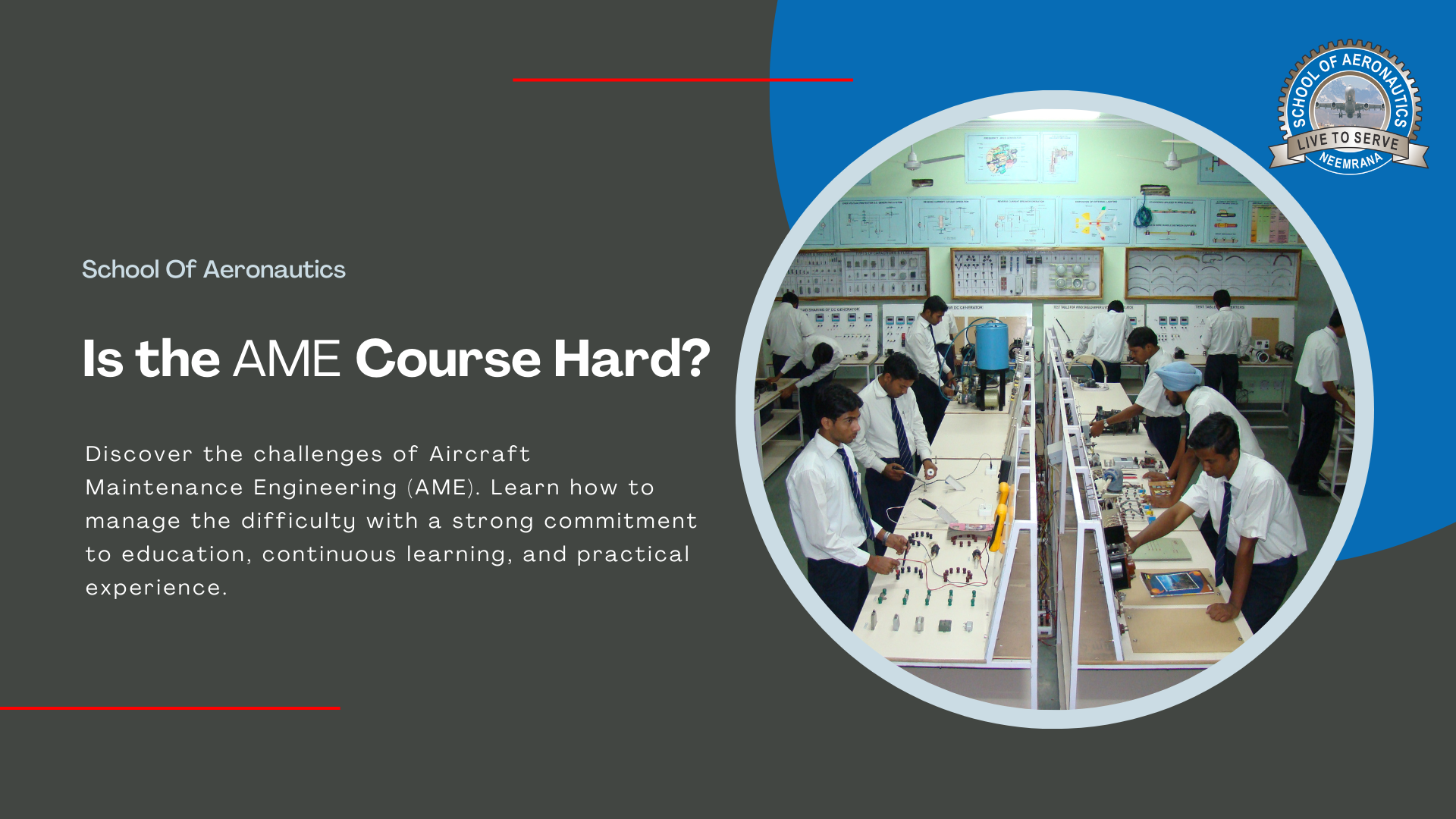
Is the AME Course Hard?
Choosing a career path is a significant decision, and understanding the challenges associated with your chosen field is crucial. For those considering a career in Aircraft Maintenance Engineering (AME), one of the common questions is, is the AME course hard? This article will provide an in-depth exploration of the AME course’s difficulty, the factors that influence its complexity, and tips for succeeding in this demanding field.
Understanding the AME Course
Aircraft Maintenance Engineering is a specialized field focused on the maintenance, repair, and overhaul of aircraft. AMEs are responsible for ensuring that aircraft are in safe operating condition, a critical role in the aviation industry. The course curriculum covers a wide range of subjects, including aerodynamics, avionics, aircraft systems, and regulations.
Factors Influencing the Difficulty of the AME Course
The perceived difficulty of the AME course can vary widely among students. Several factors contribute to this perception:
1. Technical Complexity
The AME course involves studying complex technical subjects that require a strong foundation in Physics, Chemistry, and Mathematics. Topics such as aerodynamics, aircraft systems, and avionics are inherently challenging and demand a high level of understanding and analytical skills.
2. Practical Training
In addition to theoretical knowledge, AME students must undergo extensive practical training. This hands-on experience is essential for developing the skills needed to maintain and repair aircraft. Practical training can be demanding, as it requires precision, attention to detail, and adherence to strict safety standards.
3. Regulatory Requirements
AME students must also familiarize themselves with various aviation regulations and standards. Understanding and complying with these regulations is crucial, as AMEs play a key role in ensuring aircraft safety. This aspect of the course can be challenging, as it involves keeping up-to-date with constantly evolving rules and guidelines.
Managing the Difficulty of the AME Course
While the AME course is undoubtedly challenging, the difficulty is subjective and can be managed through a strong commitment to education, continuous learning, and gaining practical experience in the field. Here are some strategies to help manage the course’s demands:
1. Strong Foundation in Basic Sciences
A solid understanding of Physics, Chemistry, and Mathematics is essential for success in the AME course. Prospective students should focus on building a strong foundation in these subjects during their higher secondary education (10+2) or equivalent. This preparation will make it easier to grasp the complex technical concepts covered in the course.
2. Effective Study Habits
Developing effective study habits is crucial for managing the course load. Here are some tips for successful studying:
- Regular Study Schedule: Establish a consistent study schedule to ensure steady progress.
- Active Learning: Engage actively with the material through discussions, practical exercises, and problem-solving.
- Utilize Resources: Take advantage of available resources such as textbooks, online courses, and study groups.
3. Practical Experience
Hands-on experience is a vital component of the AME course. Seek opportunities for practical training and internships to apply theoretical knowledge in real-world settings. This experience will not only enhance your skills but also boost your confidence in handling complex tasks.
4. Seek Guidance
Don’t hesitate to seek guidance from instructors, mentors, and industry professionals. Their insights and advice can help you navigate the challenges of the course more effectively. Additionally, networking with peers and professionals can provide valuable support and opportunities for collaboration.
5. Stay Updated with Regulations
Aviation regulations are constantly evolving. Stay updated with the latest standards and guidelines by regularly reading industry publications, attending workshops, and participating in professional organizations. This proactive approach will ensure you are always informed about the latest developments in the field.
Personal Experiences: Insights from AME Graduates
To provide a balanced perspective on is the AME course hard, we reached out to several AME graduates to share their experiences:
- John D., AME at a Major Airline: “The course was challenging, especially the technical subjects and practical training. However, my strong foundation in Physics and Mathematics helped me a lot. Staying disciplined and seeking help when needed made a big difference.”
- Priya S., AME Instructor: “For many students, the transition from theoretical to practical work is the hardest part. My advice is to embrace hands-on learning and don’t be afraid to make mistakes – that’s how you learn and improve.”
- Ahmed R., AME at an MRO: “Keeping up with regulatory changes was tough, but joining professional organizations and attending industry conferences kept me informed. Networking with peers also provided valuable support.”


